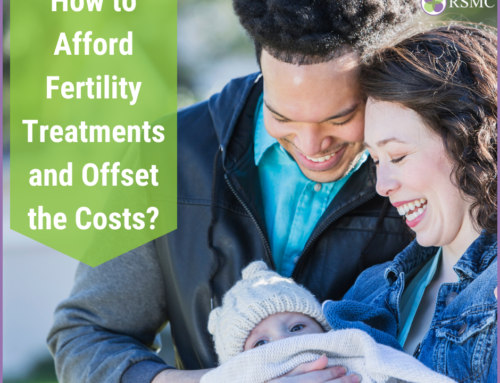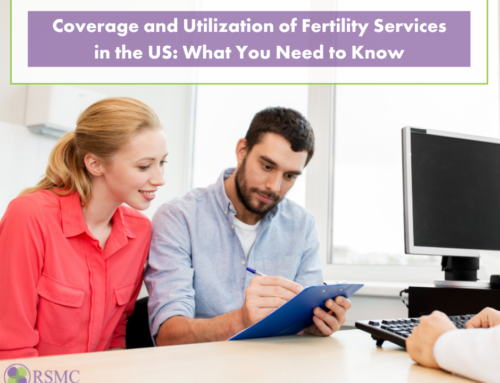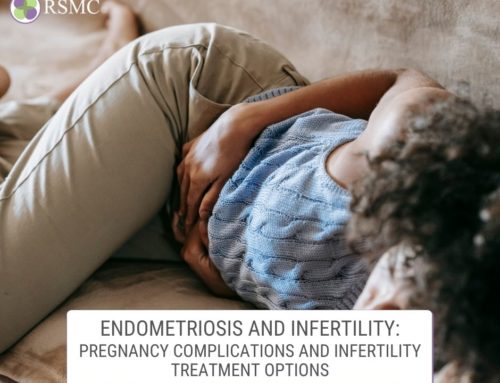The thought of getting pregnant at the age of 40 might be scary for some women. Even though getting pregnant in early 40s is possible without any fertility treatment, the chances of conceiving naturally are far lower than what it was when you were in your 20s or 30s. This means that conceiving naturally is not impossible in your 40s, but it may take longer. This is due to the rapid decline in fertility, which starts in your early 30s. Again, it may not be impossible to get pregnant in your 40s, but it’s definitely not the norm. With modern fertility techniques, you can even get pregnant in your late 40s or in some rare cases, after menopause. RSMC fertility clinic – San Diego & Irvine provides a few things that you should know about getting pregnant in your 40s.
Why Does a Woman’s Fertility Decline With Age?
Every woman is different so age cannot absolutely define fertility in a woman. Whether you want to go for your first or to have a third child, in general, one can conclude that a woman’s fertility does decline over time. Although the exact year is uncertain. For most women, their reproductive potential drops greatly after the age of 35. By the age of 40, there is less than a 10% chance of natural conceiving in any given month.
Every woman is born with all the eggs they will ever have, which is over a million. By the time they reach puberty, around 300,000 to 500,000 eggs remain in their ovaries. However, from the remaining eggs, only around 300 becomes mature and released during ovulation. As a woman ages the number and quality of eggs decline. As menopause approaches, her ovaries response to the hormones that are responsible for triggering ovulation, also declines rapidly. Therefore, the odds of getting pregnant at the age of 45 are extremely low.
How Can You Increase Your Chances of Getting Pregnant in Your 40s?
Healthy living is essential if you want to get pregnant after the age of 40. A healthy diet, regular exercise, maintaining a healthy weight, and not smoking will definitely give you the best chance to conceive naturally. Remember, the calendar is working against you when you’re trying to conceive. By practicing healthy living you can improve your chances of successful conception and having a healthy baby. However, it is equally important to consult your physician or a fertility clinic to have a full fertility checkup. Approximately 30% of infertility cases involve male factors and sometimes it’s not possible to pinpoint a precise cause.
One of the most common causes of fertility problems in women, apart from age, is damage to one or both fallopian tubes and endometriosis. Endometriosis is caused when the cells that are generally inside the womb, lie outside the womb. There are other risks factors which include fibroids, infections such as chlamydia, cancer, thyroid disease, chronic conditions such as diabetes, asthma, and certain medications such as antidepressants. Maintaining a healthy lifestyle can help you avoid all such conditions and increase your fertility.
Are There Any Problems Inherent in Being Pregnant at 45?
Statistically getting pregnant in your 40s, increases certain risks to you as well as the baby. You are more likely to experience a miscarriage or may suffer from high blood pressure. It is possible to take Mitigating actions against these dangers to obtain the right level of antenatal care. Also, the risk of chromosomal abnormalities for your baby significantly increases. That’s the reason why Reproductive Sciences Medical Center fertility clinic – San Diego & Irvine screen for such abnormalities, thereby reducing the risk.
When Should You Decide to Seek Fertility Treatment?
Since age does play a factor, women over the age of 35 typically experience a decline in fertility. If you are in your mid-30s and you have been trying to conceive naturally for six months or more, then it is time to see a doctor. Even though six months may seem like a short time to you, the sooner you seek professional help, the higher your chances are of getting pregnant. The first step of making a call for a consultation is not easy. At RSMC fertility clinic – San Diego & Irvine we do understand that dealing with infertility can be challenging, and we’re here to help you out and to let you know you’re not alone. Our dedicated team of specialists can answer any questions you may have and walk you through your options.
What Type of Treatments are Available to Help You Get Pregnant After 40 Years of Age?
There are many assisted reproductive treatments available for fertility including IUI and IVF at Reproductive Sciences Medical Center fertility clinic – San Diego & Irvine. Those who are looking to get pregnant in their 40s can always reach out to us to further discuss your options.
Can I Get Pregnant at 45? Is There a Fertility Preservation Option?
The option of fertility preservation is usually recommended to younger women who wish to delay parenthood for career or medical reasons. For a woman, fertility preservation involves retrieving, freezing, and storing her eggs and/or embryos. Fertility preservation offers flexibility for women who may want to have a family later in life but are concerned about timing. This option also helps patients have children after they’ve completed fertility treatments such as chemotherapy or radiotherapy for cancer which may have an effect on their fertility. It is also helpful for women who may have had surgery to treat endometriosis.
Becoming Pregnant After 40 – IUI
Natural conception is possible around the age of 42. IUI is one of the simplest and straightforward assisted fertility procedures that can increase the chances of getting pregnant. IUI is a procedure in which sperm from a male partner or a sperm donor is placed directly onto the woman’s uterus. This increases the chances of conceiving significantly.
Becoming Pregnant After 40 – IVF
In Vitro Fertilization (IVF) is the most popular Assisted Reproduction Technique. Here the embryo creation takes place with eggs and sperm in a specialized laboratory. The resulting embryos are then transferred to the recipient’s uterus.
There is also an option of IVF plus PGS (Preimplantation Genetic Screening) which reduces the chance of miscarriage and increases the success rate per embryo transfer. Here, an embryo biopsy is occurs to examine all 24 chromosomes to determine any chromosomal abnormalities.
Can You Get Pregnant After Menopause?
Yes, there are ways assisted reproduction can help you achieve a successful pregnancy even after menopause. It can be useful for women looking to get pregnant in their late 40s. Since egg quality does decline with age, the use of donated eggs may be recommended. Egg donation is also recommendable when a woman can’t use her own oocytes or who have repeatedly failed IVF cycles.
If have any questions regarding fertility treatment options, you can always visit us at www.fertile.com or call 858-436-7186 to schedule a consultation.























